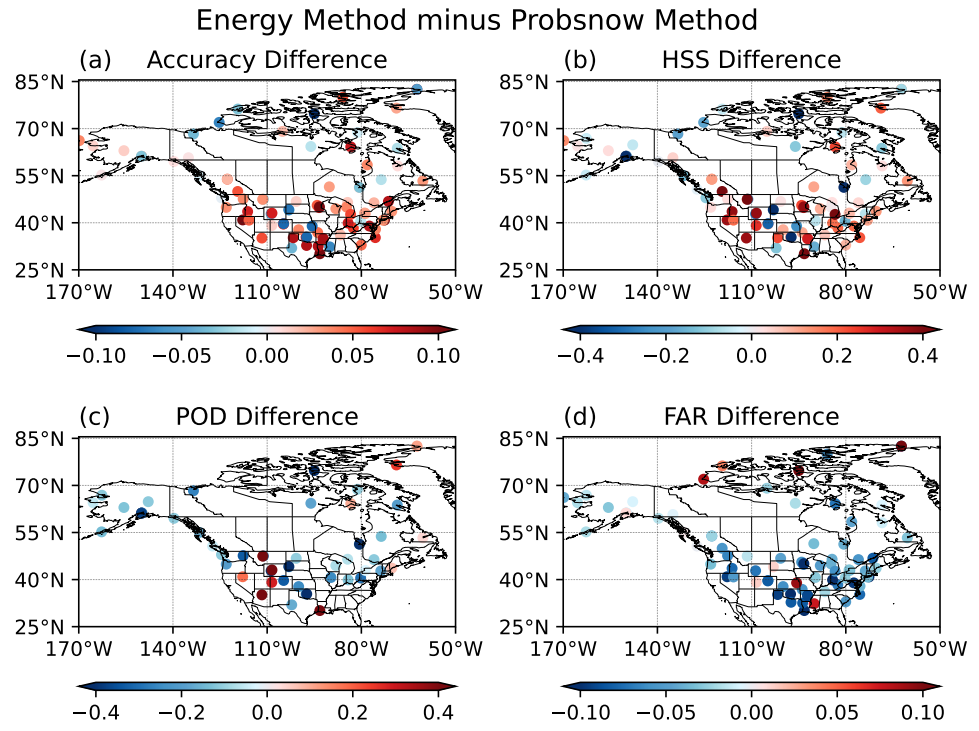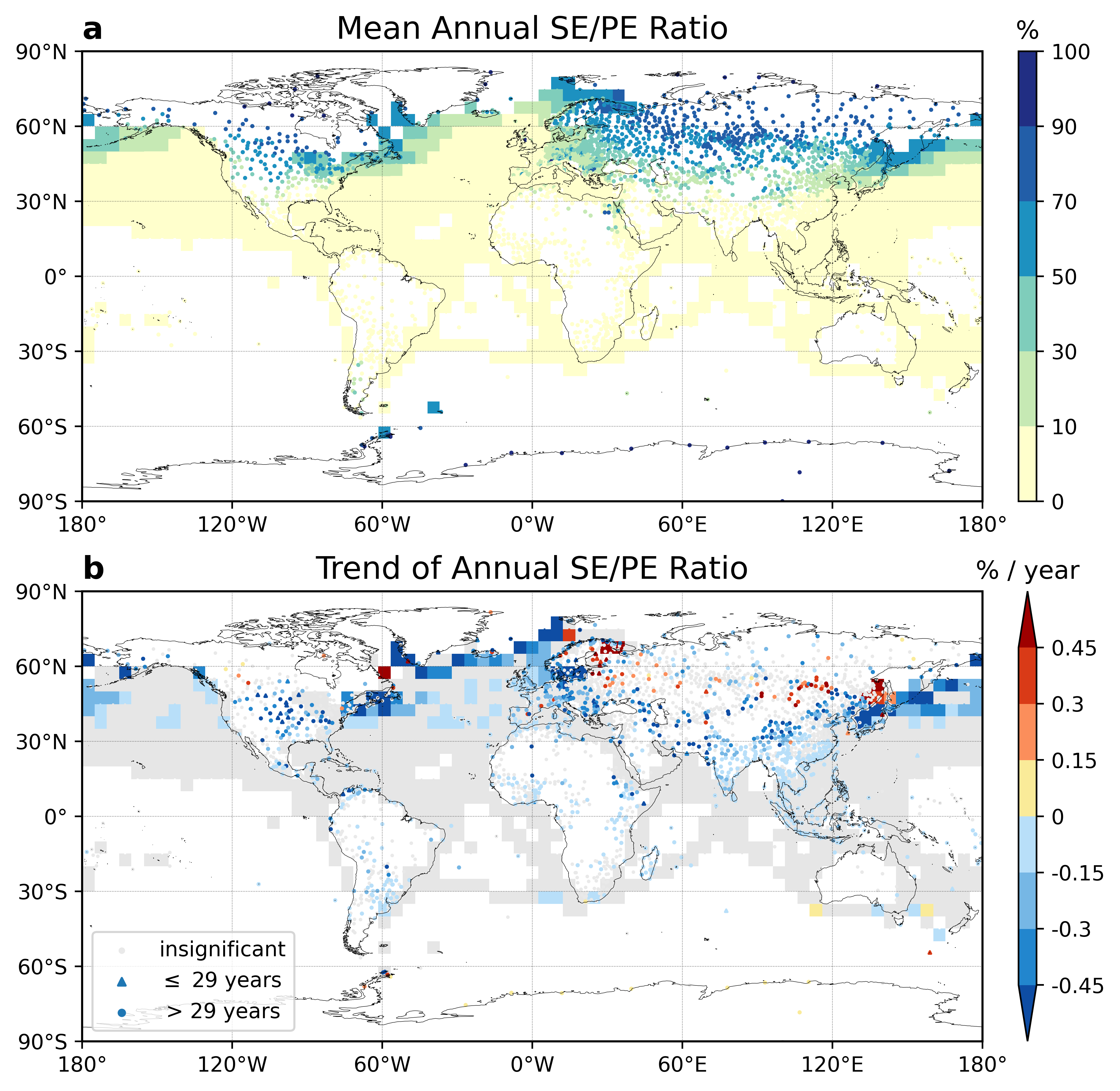Lastest Update: September 12nd, 2024
Precipitation Phase Temperature Sensitivity (Ongoing)
A recent study by Gottlieb and Mankin (2024) found that the decreasing rate of snowpack to 1degC of warming is non-linear. Considering that the precipitation phase shift from solid to liquid will lead to reduction in snow accumulation, we aim at answering the question: how will the S/P ratio respond to 1 degC of warming? We will conduct the analysis using current available satellite data CloudSat CPR and GPM DPR.
Precipitation Phase Partitioning Method
We developed a precipitation phase partitioning method (PPM) based on atmospheric energies using soundings. The energy method greatly improves the phase classification performance for precipitation with a near-surface inversion layer. We applied this method in satellite precipitation retrievals, and we are in the process of inplementing the energy method into NoahMP land surface model.

Trends of Precipitation Partitioning
In this study, we evaluated the global patterns of the climatology and trends in the precipitation partitioning by studying the snow event to precipitation event ratio (SE/PE ratio) based on weather stations and shipboard reports. We found an interesting latitudinal pattern in the trends of the SE/PE ratio, with large decreasing trends in the mid to low latitudes, and small decreasing or increasing trends in the higher latitudes.

Extreme Precipitation
We explored the impact of extreme precipitation in peninsular Florida’s hydroclimate variations.
